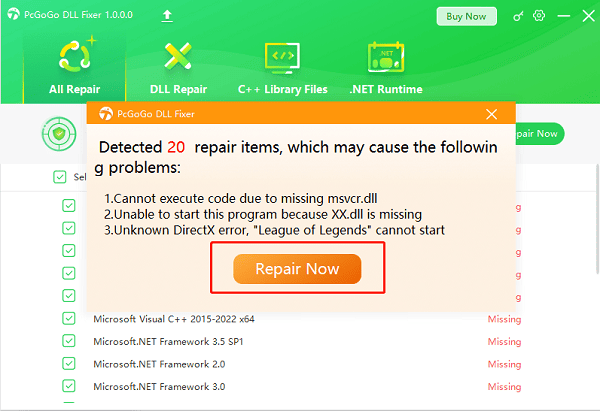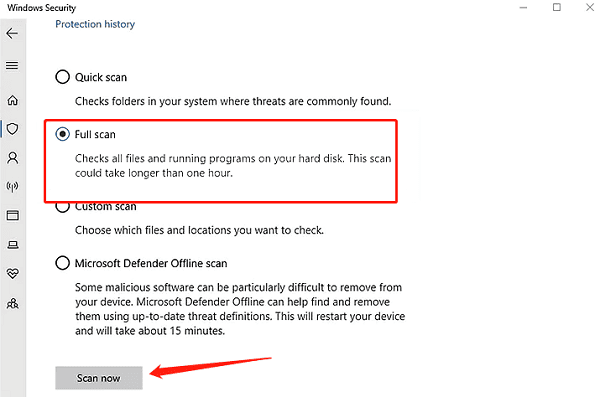
In the Windows operating system, kernel32.dll is a critical system file responsible for executing many core tasks. If kernel32.dll encounters errors, it may lead to system crashes or prevent certain programs from starting properly. This article provides effective solutions to help you quickly resolve the issue and restore normal system functionality.
1. Run the System File Checker
Press Win + S, search for "Command Prompt", right-click it, and select "Run as Administrator".
In the Command Prompt window, type the following command: sfc /scannow
Press Enter. The system will begin scanning and repairing corrupted files, which may take a few minutes.
Once the scan is complete, restart your computer and check if the issue is resolved.
If the SFC tool cannot repair the issue, proceed with the DISM tool for further repairs.
2. Use a DLL Repair Tool
DLL files are essential for the smooth operation of the Windows operating system. If they are missing or corrupted, programs may fail to start, and in severe cases, the system may be unable to read DLL files correctly. PcGoGo DLL Fixer is a simple and efficient tool that helps you quickly repair corrupted files, saving time and improving performance.
Click the download button in this article to get the software and complete the installation.
Open the software and click "Detect Now" to start scanning for missing or corrupted DLL files.
Once the scan is complete, click "Repair Now" to begin the repair process and wait for it to finish.

3. Run the DISM Tool
Press Win + S, search for "Command Prompt", right-click it, and select "Run as Administrator".
In the Command Prompt window, enter the following command: DISM /Online /Cleanup-Image /RestoreHealth

Press Enter. The DISM tool will start repairing the system image. This process may take some time.
Once the repair is complete, restart your computer and check if the kernel32.dll error is fixed.
4. Scan for Malware or Viruses
Press Win + I to open Settings.
Go to "Update & Security" > "Windows Security" > "Virus & threat protection".
Click "Quick Scan" or "Full Scan" to start scanning your system.

If any threats are detected, follow the on-screen instructions to remove them.
Restart your computer and check if the kernel32.dll issue is resolved.
5. Replace the Corrupted kernel32.dll File
On another working Windows PC, navigate to the following location: C:\Windows\System32\
Find the kernel32.dll file and copy it to a USB drive or another storage device.
On the affected computer, go to the same System32 folder: C:\Windows\System32\
Right-click on the existing kernel32.dll file and select "Rename" (e.g., rename it to kernel32_old.dll for backup).
Copy the new kernel32.dll file into the System32 folder.
Restart your computer and check if the error is resolved.
6. Check for Windows Updates
Press Win + I to open Settings.
Go to "Update & Security", then click "Windows Update".
Click "Check for updates". If updates are available, select "Download and Install".

Once the updates are installed, restart your computer and check if the issue is resolved.
The kernel32.dll error is a common issue in Windows systems. The methods outlined above can help most users resolve this problem efficiently. If the issue persists, it is recommended to contact technical support for further assistance.
See also:
Solutions to Fix the Windows 11 Unidentified Network Issue
Solutions to Fix WiFi Connected but No Internet Issue